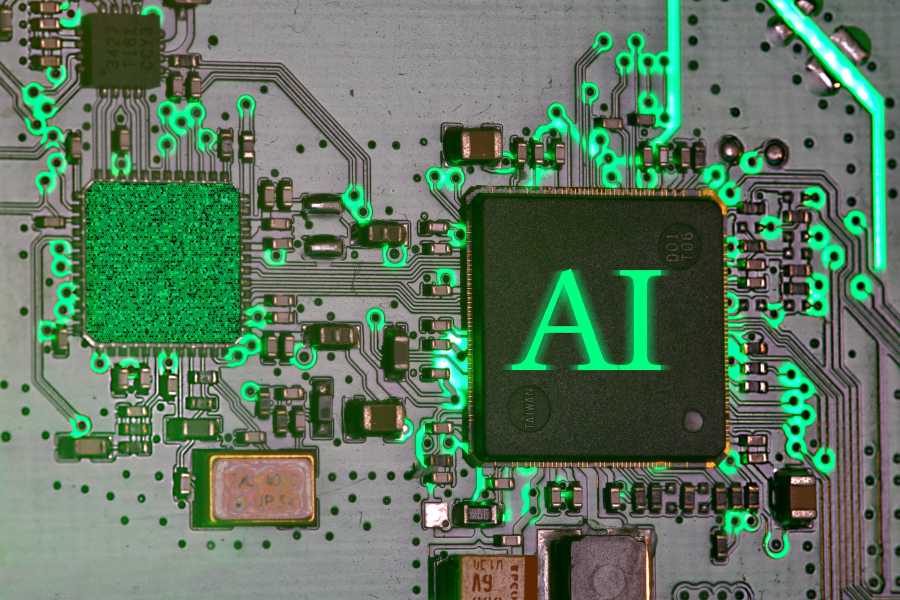AI in Business: Key Trends and Impacts to Watch in 2025

Artificial intelligence (AI) in 2025 will truly become a strategic business benefit. Its applications range from automation to creativity, forecasting, and decision-making in administration. Organizations that adopt AI proactively not only reduce expenses but also guarantee a new level of engagement with customers and partners. Behind this revolution are AI orchestration platforms that bring together tools and workflows into cohesive, smart systems.
Generative AI: innovation a new dimension
Models like ChatGPT, MidJourney, and DALL-E are changing the way we produce content. Businesses can generate texts, images, and videos in hours instead of weeks. McKinsey estimates that generative AI can contribute up to $4.4 trillion annually to the global economy.
Companies such as Coca-Cola already are using these solutions on their marketing campaigns, saving considerable amounts of money and improving efficiency by testing hundreds of variants. In order to manage these processes on a central level, an all in one AI platform is being implemented, a platform that facilitates generative tool, data, and automation coordination in a single system.
Automation of operations. A way to save resources
AI is increasingly being utilized in back-office functions: finance, logistics, and HR. For example, American bank JPMorgan uses the COiN platform for the automatic reading of loan agreements, which allows it to analyze more than 12 thousand documents in a matter of seconds.
PwC research shows that 52% of companies who have already integrated AI in internal processes have experienced cost reductions and productivity growth. At the same time, demand for experts able to install and run AI systems is growing, which stimulates HR policy changes in companies.
AI and business ethics. Need of the hour
Along with its potential, AI also brings complex challenges regarding ethics, transparency and privacy. In the European Union, the Artificial Intelligence Act takes effect in 2025, classifying systems by risk level and implementing strict requirements for use.
Companies will be required to inform users when they interact with AI and track model training. There is also a growing need to put in place internal codes of ethics for AI usage to help maintain consumer trust and avoid legal issues.
Transformation of the financial sector
Banks were among the earliest who saw the utility of AI. Analytical algorithms make it possible to detect fraud in real time, thus making transactions safer. As the Deloitte survey indicates, 75% of US banks use AI for processing customers requests with the assistance of chatbots, which significantly reduces the operators workload.
At the same time, smart investment advisers – robo-advisors – are on the rise to create individual asset management strategies. In 2025, they will offer their services to up to 20% of private investors in the US and the EU.
New Frontiers in Cybersecurity
AI agents are a double-edged sword, guardians as well as potential threats. On one side, self-learning algorithms can detect anomalies in security systems earlier than humans. On the other hand, attackers also leverage AI to create sophisticated phishing attacks and deepfake content.
For this purpose, IT firms are investing in the development of ‘defensive’ AI to protect against AI-driven attacks. For example, Microsoft is introducing the Security Copilot tool for the detection of advanced attacks by analyzing the behavior of users in cloud services.
AI in medicine. Personalized medicine and diagnostics
The healthcare industry will see one of the largest revolutions in 2025 thanks to AI. AI software is being utilized actively to decipher medical images, predict disease risk, and create personalized treatment plans.
Google DeepMind has already demonstrated excellent performance in detecting breast cancer more accurately than human diagnosticians. In the US, more than 30% of medical institutions use AI for initial analysis of tomography and MRI. Stanford University has developed the system CheXNeXt that examines chest X-rays and identifies more than 14 pathologies with greater than 90% accuracy.
Moreover, AI develops new medications. Pharmaceutical companies will use artificial intelligence in 2025 to accelerate clinical trials and test promising molecules. Not only is this cost saving, but an entirely different level of speed in fighting global epidemics.
AI in Education. Adaptive Learning and Intelligent Platforms
The education industry is also being transformed by AI. Online courses are now using more intelligent systems that personalize the learning program for the specific student. This allows for not only the potential to make learning more efficient but also to close learning gaps.
Coursera, Khan Academy, Duolingo – all these websites have embedded AI models to create individualized learning paths. In 2025, the instruments will be used in formal education as well. For example, in Finland, the nationwide educational system welcomes AI assistants to school education in order to help teachers assess the progress of the students and select relevant materials.
AI for evaluation is another segment. Such models as GPT allow us to evaluate essays, examine the logic of answers in tests, and even generate comments for feedback. This reduces teachers’ workload and at the same time improves the quality of feedback for students.
Conclusion
The year 2025 is when AI is no longer a tool but a strategic platform. Those businesses that can adapt to the new reality will not only survive but will be able to significantly expand their markets. No longer is the question if they should use AI, but how they should use it responsibly, intelligently, and efficiently.
